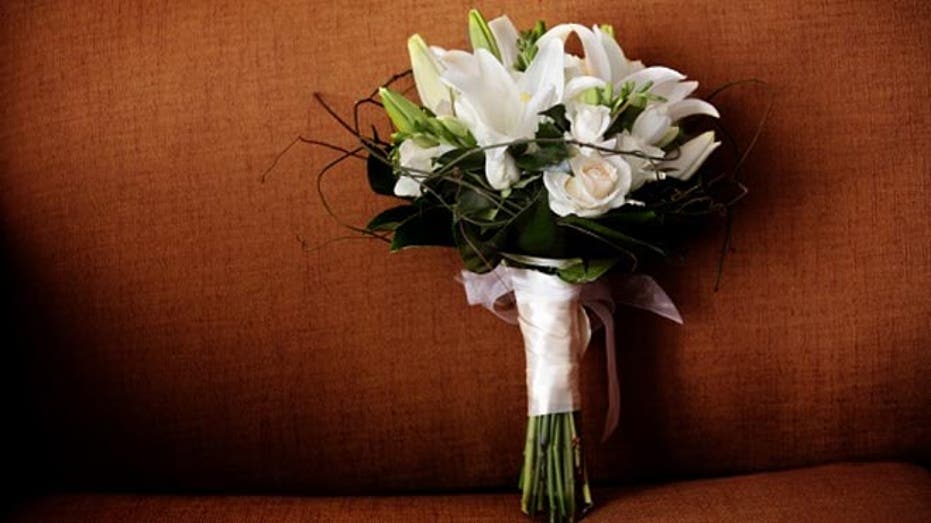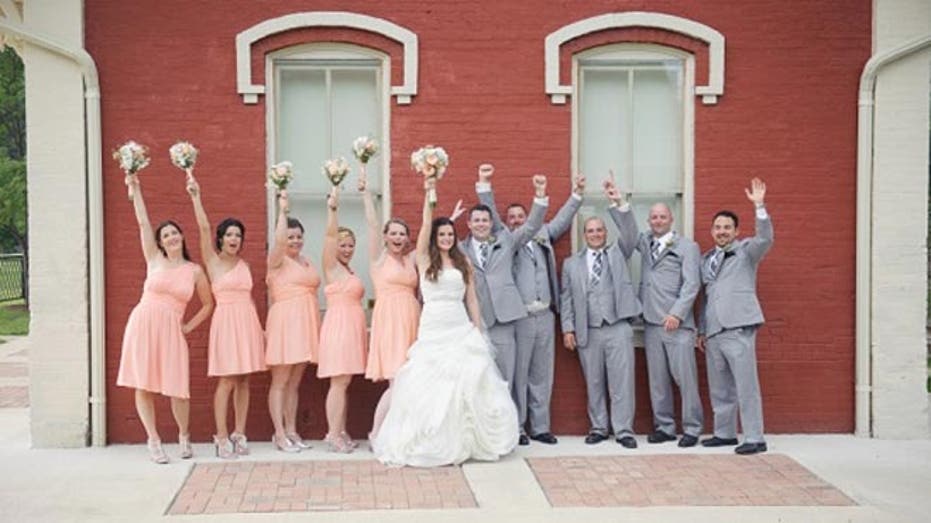Saying ‘I Don’t’ to Overspending This Wedding Season
Is the sparkle of diamonds and a lavish white wedding on your mind? When the time comes to pop the question, financial stress can easily overshadow happiness. A recent study conducted by The Knot yielded eye-opening statistics about wedding costs. In 2014 the average engagement period was 14 months, giving couples just over a year to save and pay for their dream wedding... or feel repercussions of overspending.
1. How much can you expect to spend?

Couples are spending an average of $31,213 on their wedding, according to The Knot 2014 Real Weddings Survey. While this number can drastically vary depending on location -- Manhattan brides are likely to spend upwards of $76,328 on their big day - the potential to overspend knows no geography, as almost half of all couples go over budget planning their wedding.
As one of the first major financial journeys you and your betrothed embark on together, now is a good time to set the tone for your financial future. Try establishing a per-item budget before wedding emotions dominate.
Here's what you can expect to pay and some suggestions for smarter spending.
2. The engagement ring

Cost: average of $5,855 spent on an engagement ring in 2014.
Don't let desire obstruct logic while ring shopping. $5,855 is not a small chunk of change. Although many jewelers offer retail credit cards to help fund the purchase of a shiny new ring, APR on store credit cards can soar to nearly 30 percent based on yourcredit score and initial payment. High interest rates aren't the only factor to consider, as putting a large investment on credit also has implications on your credit utilization ratio, which will affect your credit score.
Our advice: Start dumping money into a savings account now so you can pay cash for the ring.
3. The venue

Cost: average of $14,006 spent on the venue in 2014.
The venue will likely be one of the largest expenses of a wedding, but there are some great alternatives to consider. According to The Knot’s survey, a growing trend is ditching expensive venues like country clubs and hotels for locations with more character. Unusual venues like historic buildings or farms may be less expensive and naturally decorative, plus they can double as the reception location.
If you plan on paying for this, or any aspect of your wedding, with a credit card, do your homework before handing over the card. Many credit cards offer zero-APR or low-APR introductory rates for new customers with the right credit score. Even better? Some of these cards also offer cash back for purchases. If you go this route, make sure to pay off the purchases as soon as possible so you won't be hit with interest charges once that introductory rate expires.
4. The guest list

Cost: With an average spend of $555 on the wedding cake and $68 per person for catering in 2014, you're looking at $9,803 spent to feed everyone if you've got a guest list of 136 (average number of guests in The Knot's survey).
Don't worry about including everyone on your special day. Focus on what you're able to spend per guest and make a list that fits within those constraints. According to both The Knot and a 2014 American Express Spending and Savings Trackers survey, brides and grooms are paring down guest lists. A smaller guest list means less food ordered, fewer invitations to print, and fewer centerpieces to arrange.
The guest list and catering service provide huge openings to overspend if seemingly small fees aren't accounted for -- tax, gratuity, setup and delivery fees, vendor meals, cake cutting fees, and corkage fees can add up.
5. Flowers

Cost: average of $2,141 spent on flowers in 2014.
Flowers may be one of the most underestimated costs of a wedding. Results from The Knot’s survey show flowers represent nearly 7 percent of a wedding budget. Many couples are stunned by how quickly this expense adds up. Flowers are at the mercy of market prices, and it’s easy to get carried away. You will pay a high price for arrangements that feature hard-to-acquire or out-of-season flowers.
There’s more to floral arrangements than just the flowers that go into that final price tag: Do the vases need to be returned, and what happens if a guest takes one? Don’t forget about delivery and installation fees. In order to keep on budget, have some flexibility -- stick to in-season flowers, consider smaller bouquets, and repurpose flowers from the ceremony during the reception.
6. The wedding party

Cost: Wedding party participants spent $618 in 2014 to be in a wedding, according to the American Express Spending and Savings Trackers survey. That can add up fast, considering the average 2014 wedding involved an average of 4-5 bridesmaids, and the same number of groomsmen, according to The Knot.
You’re asking a lot of someone when you ask them to stand by you on your big day, and bridesmaids and groomsmen may not have the means to incur additional financial burden. While couples might be looking for stylish, matching dresses for the ladies, and sharp suits for the guys, the wedding party will be looking at one thing: the price tag. If your budget and their budget are not inline, your big day can mean credit card debt for your nearest and dearest.
Consider some compromises, such as picking the colors but giving your bridesmaids and groomsmen some flexibility to pick her or his perfect outfit. If being perfectly matched is a must, and even if it isn’t, consider eliminating a wedding party gift in lieu of pitching in for the dresses and suit rentals. Who needs yet another monogrammed flask, anyway?
7. No RSVP regrets

Weddings can be costly for everyone involved, not just the happy couple and their color-coordinated wedding party. All those people you invite have got to figure out a way to get to the church on time, will likely need a place to crash after they’ve danced the night away, and don’t want to show up without a gift. That’s not even accounting for events leading up to your big day such as an engagement party, bachelor and bachelorette parties and bridal showers. Keep in mind that some of your loved ones might not have the means to partake in any or all of your festivities, so try to be understanding when those RSVP cards come back with the “regretfully declines” box checked.
The original article: Saying ‘I don’t’ to overspending this wedding season and additional Improve Credit articles can be found on WisePiggy.com.
More From WisePiggy.com
Will paying bills on time help my credit? It depends8 credit checks for maintaining and maximizing financial healthWhat do millennials need to know about credit?



















